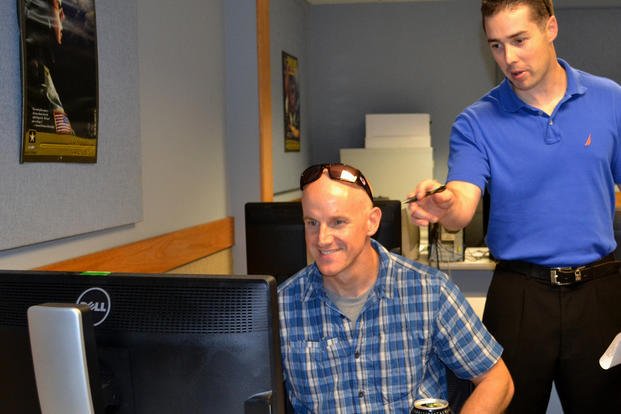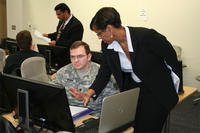Writing a resume can be overwhelming if you, like many military spouses, have a professional career that has included a ton of different jobs. It’s great to have a broad skill set, but it may seem a little too broad. Writing a resume that fits the job can be hard work.
You know you need to customize your resume to the specific skill sets and experiences that align with the job, but what does that really mean? Leaving things out seems dishonest and there are already enough gaps, that skipping something that seems irrelevant probably doesn’t feel like a good idea.
Related: Does your resume pass the 6-second test? Get a FREE assessment.
Resume guidelines can be overwhelming, and they're constantly changing. So how do you write a resume that fits the job?
The golden rule of resume writing is you must customize your resume to the job for which you're applying.
Leaving things out seems odd, but the person who wrote the job description included what they want you to know about the job, so filling up pages with extra information isn’t going to help. Plus, it’s just not practical for you to put everything on your resume.
Related: The Military Spouse Employment Manual
In terms of leaving off jobs completely, the key is finding skills within each job that apply to the application at hand, and using words from the job description to describe those skills.
If you truly don't think there is anything from a certain position that applies, you can simply list the position and a one sentence description of that job and then skip to the next one.
Having said that, I don't think you need to list every job you've ever had in your life. I would recommend you go back at least 10 years (or back to your highest education point, whichever is most recent).
If you're on a particular career path that requires more experience than that, go back at least as many years as the amount of experience required in the position description.
If all of that doesn't help you narrow down your skill set, focus on the skills you are most likely to use that also apply to the position. If you know you have a passion and you'd like to pursue that as your primary role, then that is definitely where your focus should lie.
Remember, the resume gets you in the door. But if you succeed in getting the interview, that's just the start of the conversation.
If they ask you for questions or comments, that is the time when you can say something like, "I didn't list them on my resume because they weren't mentioned in the job description, but if they're useful to the organization, I also have the following skills to offer … " and provide your additional qualifications.
Looking for more job tips?
Sign up for a free Military.com membership to have military news, updates and job resources delivered directly to your inbox.























